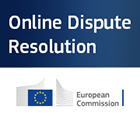Hidden subscriptions
You’ve been offered a free sample or an ultra-cheap trial package. Great, right? So you accept the proposal ... but when you do, you also take out a new, unwanted subscription without realising. Then, at regular intervals, money disappears from your account.
In this instance, you’ve been the victim of unsolicited supply or deception. Hidden subscriptions are often the subject of debate. Sellers will claim that you knew about the subscription, or even that you explicitly consented to it. The mandatory pre-contractual information about the subscription turned out to be hidden away somewhere in small print. And the confirmation email about your new subscription was sent to your spam folder on purpose.
To prevent you falling into this trap, ECC Belgium explains:
- how to detect a hidden subscription;
- how to check the authenticity of an offer;
- the steps to take if you do get scammed.
How can you recognise a hidden subscription?
Prevention is better than cure. Be sure to analyse every offer thoroughly so you can avoid taking out an unwanted subscription. Here’s how to recognise a misleading offer:
- They often involve samples of personal care products, puzzle books, clothing, collectors’ items such as coins, small electronics such as e-cigarettes, etc.
- Sometimes you will actually receive the sample. But the information about your new subscription ends up in your spam folder. Or you might receive it later, when money is taken from your account for the first time or when you receive the first payment request.
- You may have to pay a small sum for the sample or shipping costs. To complete the payment, you need to enter your credit card details. Right after that, the scammers create a direct debit.
Unsure if an offer is genuine?
If you’re about to make an online purchase, do the WebshopCheck first. Read this information on misleading telesales and avoid signing up to a hidden subscription during a phone call.
You’ve been scammed. What now?
Have you fallen into the trap? This is the best way to react:
- Submit a written complaint to the seller immediately (within 14 days of delivery of the sample pack). In it, dispute and cancel the purchase and request a refund of all unjustly collected amounts.
- Refuse any new packages sent to you by the seller. In theory, you may keep an unwanted package because you’ve been the victim of an unsolicited purchase. In that case, inform the merchant in writing of your position.
- If the seller has your credit card details, block your card via CardStop by calling 078 170 170. This will prevent the merchant from collecting new payments. File an objection with the bank or your card issuer so you can try to recover any unjustly collected payments.
- If the merchant sends an invoice, do not pay it and contest it immediately.
- If you are the subject of an amicable recovery from a debt collection agency or bailiff, contest it in writing. After the collection agency or bailiff receives your substantiated challenge, they may no longer harass you.
- Keep copies of all correspondence.
- If you still need support, contact the legal team at ECC Belgium.


